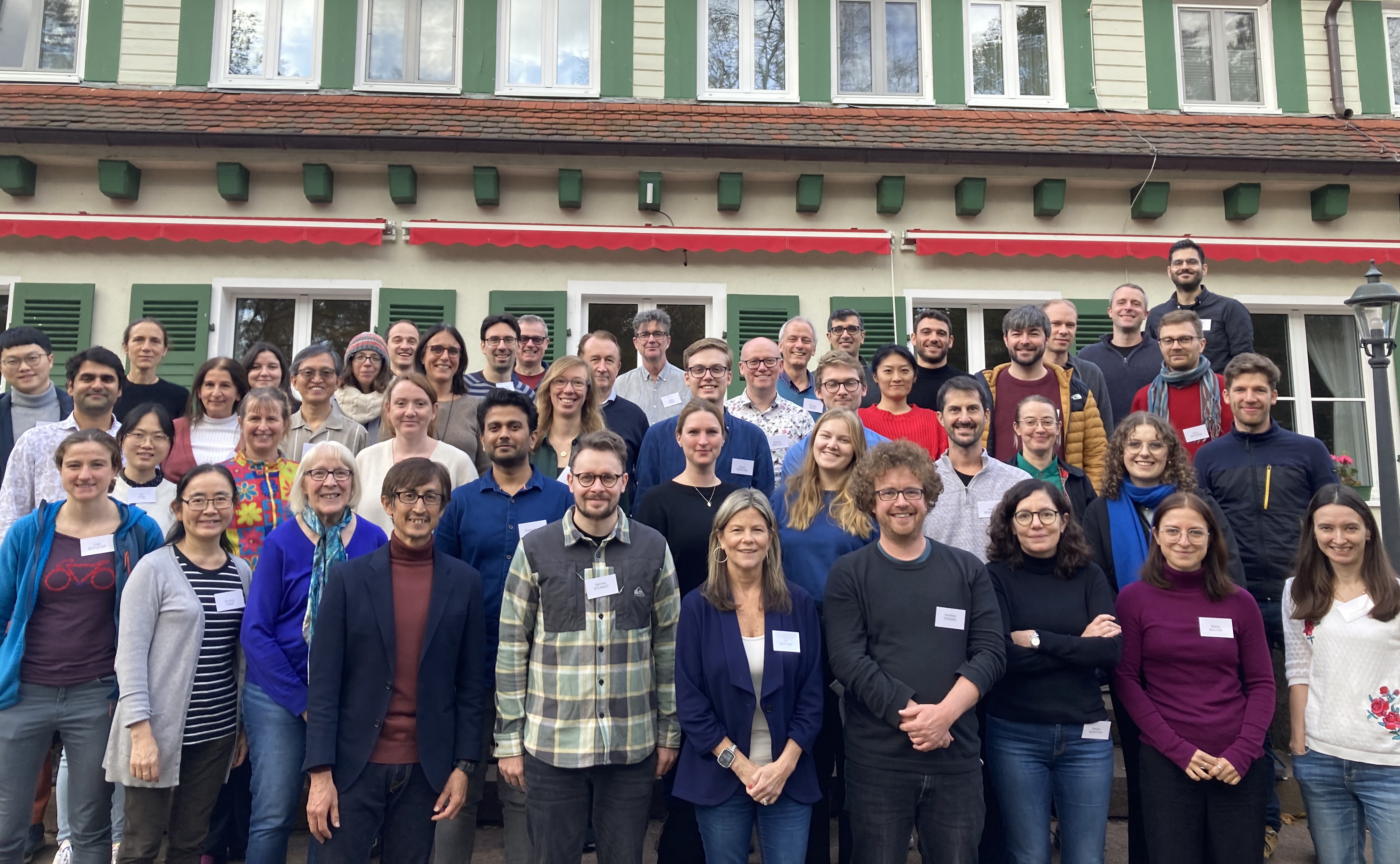By TIPMIP-Team January 3, 2024
800. WE Heraeus Seminar report: Towards TIPMIP

Ice-sheet disintegration, permafrost degradation and thaw, tropical deforestation—climate change poses a serious risk to these and other tipping elements discussed at the 800. WE Heraeus Seminar “Addressing Key Uncertainties in Modelling Physical and Ecological Tipping Dynamics in the Earth System (Towards TIPMIP)” Nov. 5th – 8th at the Hotel Döllnsee in Templin, Germany, just outside Berlin.
Forty-five participants joined Prof. Dr. Ricarda Winkelmann, Prof. Dr. Victor Brovkin, and Prof. Dr. Anna von der Heydt, the seminar organisers, to discuss the biophysical processes potentially leading to tipping in the Earth system, and how they are captured in state-of-the-art modelling. Over the course of the four-day seminar, the participants, invited speakers, and organisers heard from experts on the various tipping elements and domains, discussed the limitations of tipping representation in models, and developed domain-specific experimental protocols to explore and mitigate such limitations. These efforts feed into a larger Tipping Point Modelling Intercomparison Project (TIPMIP) to improve our understanding of tipping processes in the Earth system and the risks they pose to human societies. The seminar participants discussed the role of TIPMIP in the context of other modelling intercomparison projects and broader policy and societal contexts.
The meeting began on Sunday evening with a presentation by Prof. Dr. Johan Rockström, highlighting the current and pressing need for a Tipping Point Modelling Intercomparison Project in order to inform policy makers on the likelihood and danger of crossing individual tipping points due to ongoing anthropogenic global warming. Monday featured introductory talks by the seminar organisers who provided key background for the meeting: on abrupt events and cascading impacts triggered in the geologic past, current sensitivities in the climate system, and the developments so far in progressing towards a TIPMIP. In-depth presentations on the unique considerations for modelling the different tipping domains followed, providing a comprehensive introduction into tipping dynamics and modelling across all biophysical domains. Additional talks on Tuesday highlighted experimental draft protocols for the TIPMIP and links with existing model intercomparison projects. Tools for the evaluation of tipping scenarios in large Earth observation and model output datasets were likewise presented. Wednesday’s talks wrapped up the meeting and centred on the consequences of crossing tipping points for societies, as well as the need for consideration of social tipping points towards positive sustainability transformations. In addition to the invited presentations, all participants presenting posters gave two-minute flash presentations prior to the poster sessions on both Monday and Tuesday afternoons. From these, three early career presenters were awarded poster prizes for outstanding contributions: Charline Ragon, Sjoerd Terpstra, and Da Nian.
Breakout and plenary discussion sessions on all three days of the seminar centred around identifying key uncertainties within the individual domains and how these uncertainties could be addressed during development of the TIPMIP protocols. These included overviews of the potential for tipping behaviour in the polar ice-sheets and (high-latitude) permafrost systems; the present state of biosphere modelling as well as key knowledge and model development gaps; and tipping in coupled systems, including ocean circulation and fully coupled Earth system models. Initial phase one protocols were developed for the ice-sheet experiments which will commence in the coming months. Distinct domain experimental protocols underneath the umbrella of an overarching TIPMIP protocol will be developed as a follow-up to the seminar. Participants self-organised to initiate domain-specific communities, and set in motion plans to publish the protocols in a TIPMIP journal special issue.
Last but not least, we would like to thank the Wilhelm und Else Heraeus Stiftung for their generous funding, making it possible to organize this event, which further solidified the foundation for TIPMIP.
